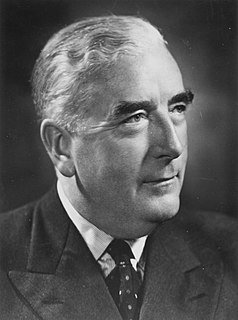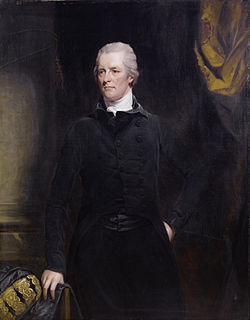A Quote by W. Somerset Maugham
He is not famous. It may be that he never will be. It may be that when his life at last comes to an end he will leave no more trace of his sojourn on earth than a stone thrown into a river leaves on the surface of the water. But it may be that the way of life that he has chosen for himself and the peculiar strength and sweetness of his character may have an ever-growing influence over his fellow men so that, long after his death perhaps, it may be realized that there lived in this age a very remarkable creature.
Related Quotes
The great passion in a man's life may not be for women or men or wealth or toys or fame, or even for his children, but for his masculinity, and at any point in his life he may be tempted to throw over the things for which he regularly lays down his life for the sake of that masculinity. He may keep this passion secret from women, and he may even deny it to himself, but the other boys know it about themselves and the wiser ones know it about the rest of us as well.
Christ is like a river in another respect. A river is continually flowing, there are fresh supplies of water coming from the fountain-head continually, so that a man may live by it, and be supplied with water all his life. So Christ is an ever-flowing fountain; he is continually supplying his people, and the fountain is not spent. They who live upon Christ, may have fresh supplies from him to all eternity; they may have an increase of blessedness that is new, and new still, and which never will come to an end.
In whatever area in life one may meet the challenges of courage, whatever may be the sacrifices he faces if he follows his conscience - the loss of his friends, his fortune, his contentment, even the esteem of his fellow men - each man must decide for himself the course he will follow. The stories of past courage can define that ingredient - they can teach, they can offer hope, they can provide inspiration. But they cannot supply courage itself. For this each man must look into his own soul.
A man may be a tough, concentrated, successful moneymaker and never contribute to his country anything more than a horrible example. A manager may be tough and practical, squeezing out, while the going is good, the last ounce of profit and dividend, and may leave behind him an exhausted industry and a legacy of industrial hatred. A tough manager may never look outside his own factory walls or be conscious of his partnership in a wider world. I often wonder what strange cud such men sit chewing when their working days are over, and the accumulating riches of the mind have eluded them.
Then he will be called Acheron for the River of Woe. Like the river of the Underworld, his journey shall be dark, long and enduring. He will be able to give life and to take it. He will walk through his life alone and abandoned – ever seeking kindness and ever finding cruelty. May the gods have mercy on you, little one. No one else ever will. (Oracle)
I said earlier that I do not believe an artist's life throws much light upon his works. I do believe, however, that, more often than most people realize, his works may throw light upon his life. An artist with certain imaginative ideas in his head may then involve himself in relationships which are congenial to them.
Circumstances have rarely favored great men. A lowly beginning is no bar to a great career. The boy who works his way through college may have a hard time of it, but he will learn how to work his way in life, and will usually take higher rank in school and in after life than his classmate who is the son of a millionaire.
The orator, who may be silent without danger, may praise without difficulty and without reluctance; and posterity will confess that the character of Theodosius might furnish the subject of a sincere and ample panegyric. The wisdom of his laws and the success of his arms rendered his administration respectable in the eyes both of his subjects and of his enemies. He loved and practised the virtues of domestic life, which seldom hold their residence in the palaces of kings.
Whatever man may stand, whatever he may do, to whatever he may apply his hand - in agriculture, in commerce, and in industry, or his mind, in the world of art, and science - he is, in whatsoever it may be, constantly standing before the face of God. He is employed in the service of his God. He has strictly to obey his God. And above all, he has to aim at the glory of his God.
A well-read writer, with good taste, is one who has the command of the wit of other men; he searches where knowledge is to be found; and though he may not himself excel in invention, his ingenuity may compose one of those agreeable books, the deliciæ of literature, that will out-last the fading meteors of his day.







































